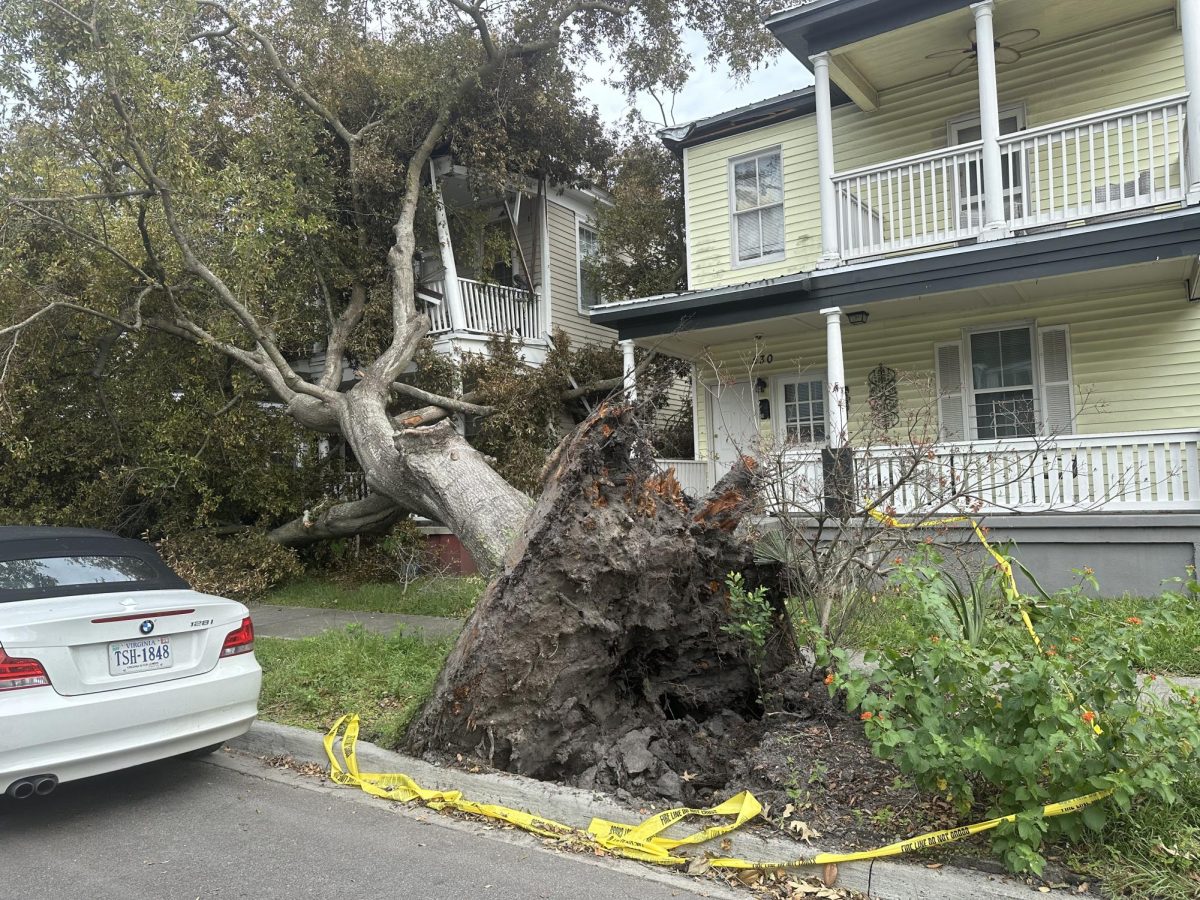By Rolando Zenteno, Staff Writer
Mending the Line, a biopic documentary on the life of WWII veteran Frank Moore, was featured in the Ogeechee Theater Nov. 10 nearly 70 years after Moore last visited Savannah while on base at Fort Stewart.
As a soldier afoot in Norman soil, Moore came across the gore of war through firsthand experience. Many of them led to vicarious memories, some which he shared to a packed audience following the 45-minute film.
“This one young lad’s arm was shot off, holding on just by the flesh,” he said. “I thought he was dead. He had lost so much blood. I tried to get him to respond and I couldn’t do it. I took his belt off and tied his arm to his body.”
“In 1989, at our first reunion I went to, we walked in and there he was. At first I couldn’t figure out what was wrong. I was full of emotions. I told him: ‘I thought you were dead! I knew you were dead, there was no response, I couldn’t feel your heart or anything.’ He said: ‘Frank, I could hear you, but I couldn’t respond.’”
Even amid war, 21-year-old Moore kept an eye beyond the turmoil and on what he enjoyed the most: fly-fishing. He couldn’t help but imagine what it would be like to dive beyond the banks of the French rivers. He wanted to let loose of his fly-fishing heart. He wanted to experience the rush of being on water. He wanted to feel.
The war came to an end, and Moore made his way back to the States. As the years went by, he took the toll of suffering from post-traumatic stress disorder to the waters of the North Umpqua River in Oregon.
The years went by, but the memories did not. Moore began healing through water and fishing, but he never let go of his wish to one day fish that French river he once saw as a young soldier.
“Mending the Line” made his dream come true. 90-year-old Frank got to fish the river of his dreams.
Steve Engman directed the documentary and worked on it for 16 hours a day, six months straight. He spent so much time in production that by the end, he had become close friends with Frank.
“He is an extension of my family and I am an extension of his,” he added. “Anytime that I am going through a really tough time in my life – which I actually went through while editing this film – he is there for me.”
After three weeks in France, 32 production days, a crew of seven people, 12 terabytes of raw footage, and around $100,000, the documentary finally made its way unto the lineup of the Mountainfilm Festival.
“We selected the film to be in our festival, and then selected it to go out on a tour so that we could take it to as many places as we could,” said Henry Lystad, Director of the Mountainfilm’s World Tour.
Janie Lynes, an Armstrong Alumni, thought the film was amazing.
“I guess it’s always interesting to hear first-hand stories, and specially being a teacher, to be able to share it with children, I think it gets through them so much better,” she said.
Frank stayed after the documentary to talk to those in attendance, answering many of their questions and going into detailed anecdotes of how and when things happened. He stood there, atop the Ogeechee Theater stage, recounting story after story. Some were about war, others about fishing, but everyone who heard them never failed to smile.
His stories, like fly-fishing, showed no boundaries.







